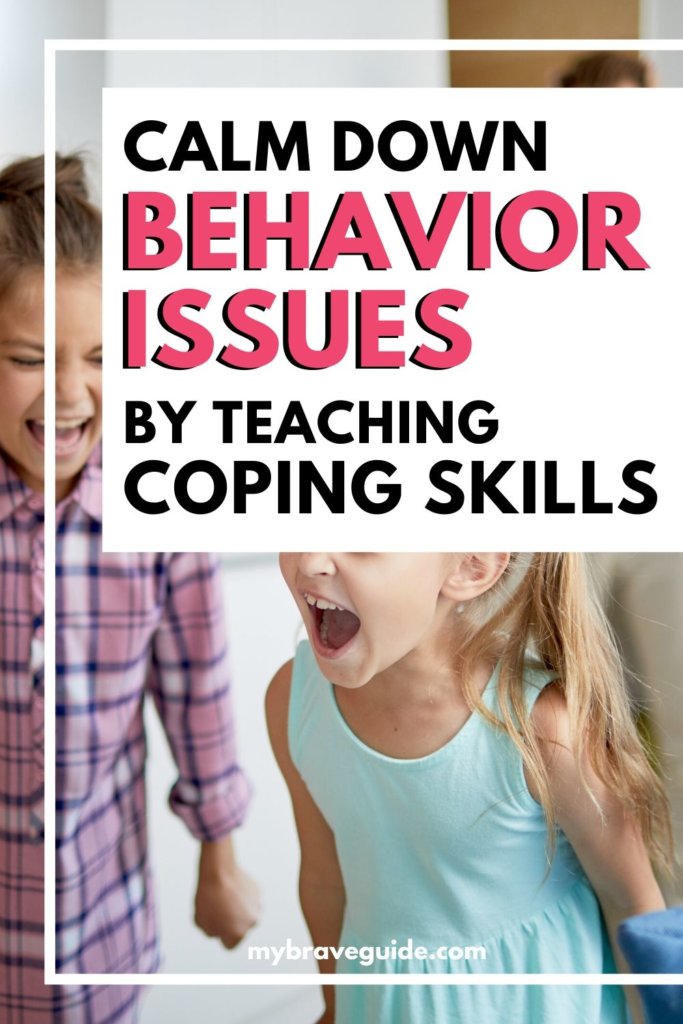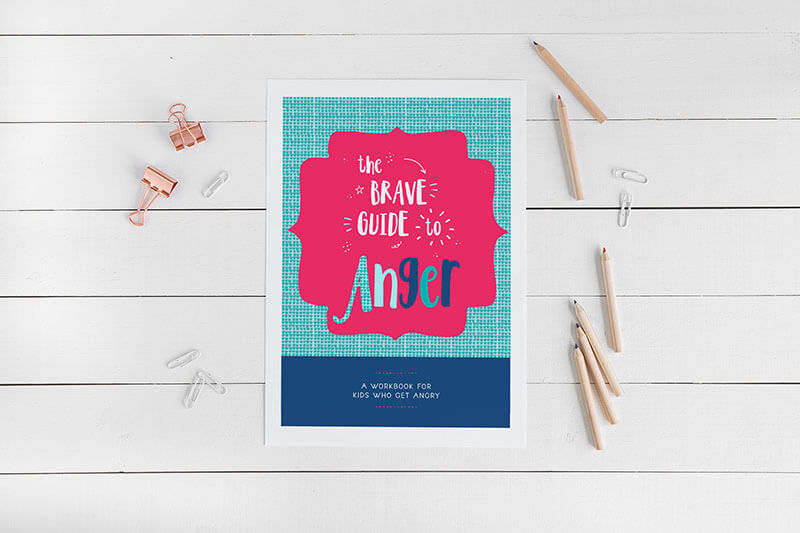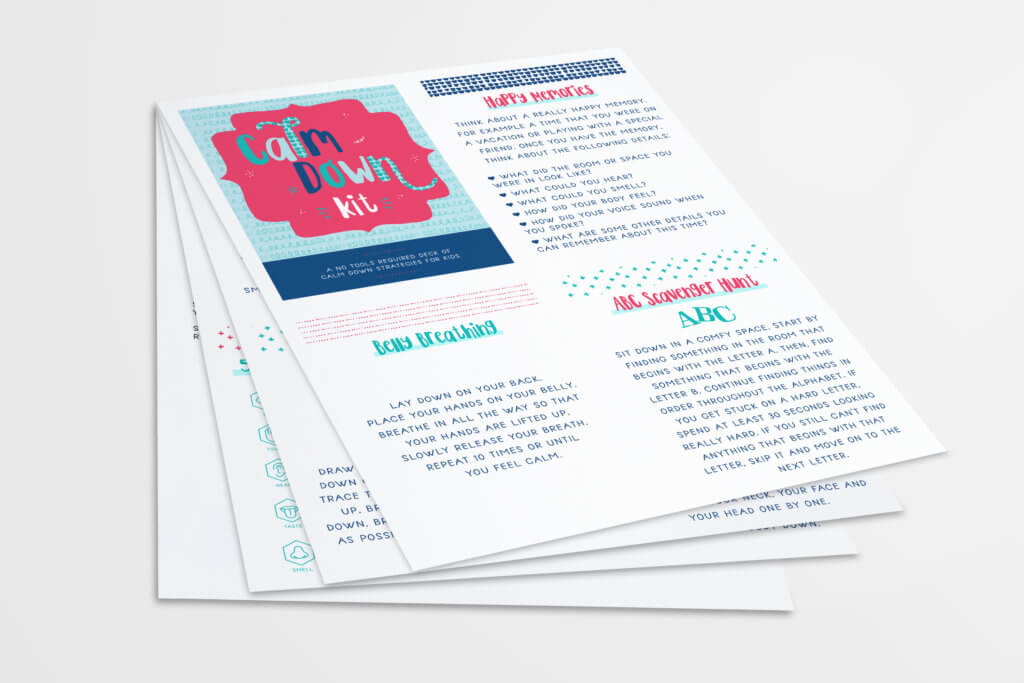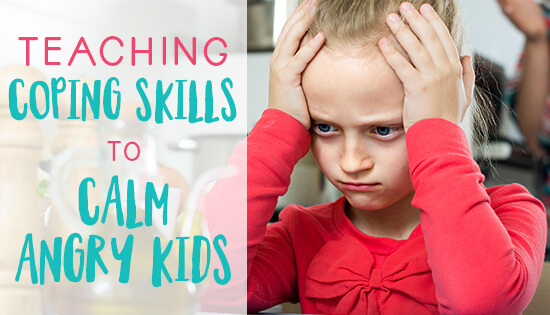Managing kids’ behavior issues such as angry outbursts, yelling, tantrums, defiance, disrespect, and other behavior problems can be challenging! Not only do you want to help the child self-regulate their behavior, but you also need to try to keep your own cool (which is so much easier said than done!!!)
Whether you are trying to work on your child’s behavior problems at home or if you work with children in the classroom setting, teaching kids coping skills can be the answer to managing behavior issues.
What are Coping Skills
If the term “coping skills” is a new concept for you, here’s a simple definition. Coping Skills are any action, thought, or positive behavior that you use to help you cope with a difficult situation, emotion, or negative behavior. They are skills that help people calm down.
Coping skills come from Cognitive Behavioral Therapy. In my work as a family therapist focusing on parenting, coping skills were one of the most helpful and useful tools for parent and children alike.
Coping Skills Calm Big Emotions Like Anger
Working with kids (either as a mom, a teacher, or another childcare professional) can be really stressful and challenging. Having a concrete plan that helps you steer your kids into the thoughts and behaviors that you want, is essential.
Knowing what to do in the middle of stressful moments such as watching a child meltdown or tantrum can be extremely helpful in keeping your cool and calming down the child.
Coping skills are also very important for kids who struggle with anger, tantrums, defiance, and the like. These calm down skills will help them learn to navigate their home and school life much more successfully!
Coping skills to calm angry kids can include activities such as deep breathing, exercises for your body, mantras, tools, and thought pattern disrupters (such as wearing a rubber band on your wrist.)

Why You Should Teach Your Child Coping Skills
Before we jump into some specific coping skills that you can teach your child to help them work through their behavior issues, it is important to talk about why you should teach coping skills.
No one is born with the tools needed to calm themselves enough to manage their emotions and behaviors in appropriate ways.
The ability to calm down when dealing with an intense emotion is a learned behavior.
This is one of the reasons why many adults still have a hard time when it comes to coping with their emotions. You will see people turn to overeating, drinking, scrolling through social media to numb their minds, etc.
Having negative thoughts or behaviors can be overwhelming, especially when you don’t know what to do with those big emotions and behaviors! It is important to realize this when thinking about children’s behaviors.
Anger is not bad or wrong. It is the behaviors that come out of that emotion that may be causing them trouble.
Learning skills and tools that you can use when faced with anger can be a key component to overcoming the negative behaviors that your child may be displaying.
As a side note, there are also other aspects that you can dive into beyond coping skills. If you have a child who is really struggling with anger. The Brave Guide to Anger is a printable work book that helps kids learn to understand and manage their anger in many different ways. This workbook is a great option to help kids understand why they are angry and how to control their anger.

Whether we are a parent, a therapist, a teacher, or any other caring adult, it is our job to teach kids the skills needed to handle their emotions. We can help them learn to calm themselves in the midst of all that anger and their angry behaviors.
How to Teach Coping Skills to Angry Kids
Now that you understand the importance of teaching kids how to cope with their anger and the negative behaviors it may be causing, let’s look at how to teach kids coping skills.
First of all, you will want to figure out which coping skill to teach. To do this, I recommend downloading my free printable mini-deck of coping skills or my list of 75 calm down activities. Both are available for free in the Parenting Resource Library.

Use one of these tools to pick out a skill that you think would help your child. Or, alternately, look through the tools together and allow your child to pick one that they want to try.
Now that you have a skill picked out, I find that a simple three-step process works really well to teach coping skills to calm angry kids…
Step 1: Teach the Coping Skill
In order to teach a new calm down skill to your child, find a time where they are calm and able to focus. (Trying to introduce a new skill in the middle of a tantrum or fit of anger does not work well!)
Tell your child that you have noticed that they have been having a hard time managing their anger. It is important to not shame or blame them – be specific and factual.
You can also us this talk to introduce or reinforce the idea that anger isn’t bad – we just need to learn how to express our anger in appropriate ways.
Tell them that you are going to teach them something that will help them deal with feeling angry.
Next, show them the skill and model using it. Talk about appropriate ways and times to use this skill. Allow them to try out the skill with you.
(I find that deep breathing is one of the easiest coping skills to start out with for kids.)
Step 2: Practice the Coping Skill with Your Child
Over the coming weeks, make sure that you spend time practicing the new coping skill at calm moments. I find it helpful to build coping skills practice into our normal routines. (So, for example, we practice deep breathing before bedtime or as part of a morning routine.)
Step 3: Use the Coping Skill
Once you have been able to practice the new coping skill and feel like your child is capable of using it in a real situation, encourage them to do so. If you see them starting to get angry about something, ask them to try doing the coping skill with you.
Or, if you know that you are going to have a situation that may trigger anger, let your child know that the situation is going to happen and that now might be a good time to use their new coping skill. (For example, transitioning from an enjoyable activity can often trigger anger in kids.)
Make sure that you use lots of positive reinforcement for their efforts. Your child may not successfully use the skill the first time (or the fifth, it’s a learning process) but praise the fact that they are trying. That they are being responsible for their thoughts and behaviors.
What Coping Skills Calm Angry Kids?
There are so many great coping skills that kids can learn to help them calm down and control their anger. As I already stated, I think deep breathing is a great place to start.
Physical exercises are also really helpful for burning off some of the excess energy that often comes with anger. I have a Coping Skills Card Deck that has a couple of great exercises for kids to use as well as lots of deep breathing exercises and other coping skills.
If you are working in a classroom setting, I have a Virtual Calm Down Kit that could be very helpful for you and your kids. Learn more about the Virtual Calm Down Kit here.
I also have a great series on stopping tantrums which can often be half the battle when it comes to getting kids to use coping skills. Make sure to check that series out starting at this link here.
I hope that incorporating some new coping skills into your child’s life will enable them to get one step closer to controlling their anger. Remember, learning how to manage anger and all of the behavior issues that can come with it is a journey that can be long, difficult and full of forward and backward momentum. Keep practicing and teaching and your child will learn in time!
Sending you love and light
~Ruth
